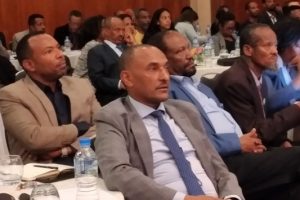Kenya and Tanzania are among the world’s 70 countries notorious in helping multinational corporations to underpay corporate income tax, leading to lower revenue collections and persistent budget deficit, according to the latest Corporate Tax Haven Index (CTHI 2021) by Tax Justice Network Africa (TJNA), a Pan-African research and advocacy organisation.
The findings of the study which were made public last week show that Kenya is responsible for 0.1 percent of the world’s corporate tax abuse with CTHI of 0.14 percent, haven score of 50 percent and Global Scale weight of 0.013 percent.
The CTHI measures how complicit countries are in helping multinational corporations underpay corporate income tax while a haven score measures how much scope of corporate tax abuse the jurisdiction’s tax and financial system allow, with zero meaning no scope while 100 percent meaning unrestrained scope.
On the other hand, the Global Scale weight measures how much of the financial activity conducted by multinational corporations around the world is hosted by the jurisdiction.
CTHI value is calculated by combining a jurisdiction’s Haven Score and Global Scale Weight.
According to the report, Tanzania is also responsible for 0.1 percent of the World’s corporate tax abuse, with a CTHI, haven score and Global Scale weight of 0.11 percent, 48 percent and 0.01 percent respectively.
Kenya, Uganda and Tanzania issued their transfer pricing regulations in 2006, 2011 and 2014 respectively to deal with Transfer pricing — one of the biggest tax rip-offs impacting many nations—where large multinationals shift costs between items and avoid paying huge amounts of corporate tax within their borders.
It is estimated that about 60 percent of international trade happens within multinational entities.
According to the United Nations Conference on Trade and Development (UNCTAD) Illicit financial flows — cross border exchanges of value, monetary or otherwise, which are illegally earned, transferred or used — cost African countries around $50 billion per year, dwarfing the amount of official development assistance the continent receives annually.
In Kenya, it is estimated that the country been losing on average Ksh40 billion ($366.97 million) every year since 2011 through illicit financial flows as government, local firms and multinationals engage in deceitful schemes to avoid paying taxes.
It is argued that multinationals manipulate loopholes of the existing transfer pricing legislation to repatriate profits in their home countries.
The Kenya Revenue Authority (KRA) has identified transfer pricing as a major area of tax revenue leakage and has been conducting transfer pricing audits of multinational companies with a view of curbing corporate tax underpayment in the country.
According to the CTHI British Virgin Islands is responsible for the highest share of the world’s corporate income tax abuse at 6.4 percent, followed by Cayman Islands (6 percent), Bermuda (5.7 percent), Netherlands (5.5 percent), Switzerland (5.1 percent), Luxembourg (4.1 percent), Hong Kong (4.1 percent), Jersey (3.9 percent), Singapore (3.9 percent) and United Arab Emirates (3.8 percent).
The countries with the least contribution to corporate income tax abuse by multinationals include Montserrat (0.007 percent), Gambia (0.029 percent), Argentina (0.082 percent), San Marino (0.093 percent) and Ecuador (0.097 percent).
Kenya and Tanzania occupy positions 63 and 65 respectively.
Other African countries helping multinational to abuse corporate income tax include Mauritius (2.3 percent), South Africa (0.45 percent), Liberia (0.42 percent), Seychelles ( 0.37 percent ), Botswana ( 0.18 percent ) and Ghana ( 0.15 percent).
According to UNCTAD the African continent is exposed to trade misinvoicing of between $30 and $52 billion contributing to a capital flight of $88.6 billion from the continent
The CTHI is a ranking of jurisdiction most complicit in helping multinational corporations underpay corporate income tax.
The Index thoroughly evaluates each jurisdictions tax and financial systems to create a clear picture of the world’s greatest enablers of global corporate tax abuse, and to highlight the laws and policies that policymakers can amend to reduce their jurisdiction’s enabling of corporate tax abuse.
Source: The East African
The Ethiopian Herald March 17/2021





